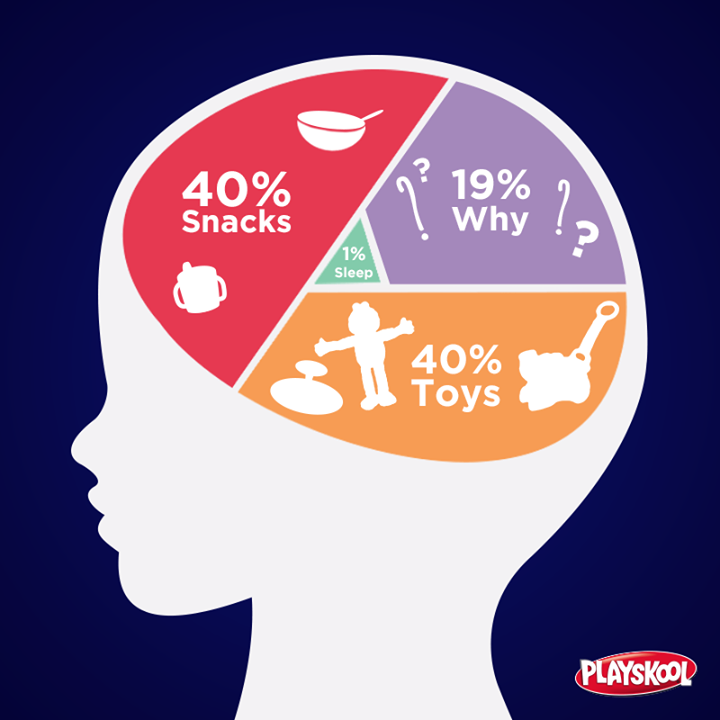
Today’s breeders face a never-ending barrage of information about how to parent in the 21st century, from friends and parents, to books, doctors and, of course, the Internet. It’s amidst all this noise that brands struggle to break through — and the spoils of digital marketing success are great and many.
Parents are savvier now than ever before, particularly Web-connected women ages 18-34. Millennial moms comprise a group more nimble with the Internet and mobile devices than Gen X and previous generations. And their numbers are vast. There are 90 million millennials in the U.S., a quarter of whom are parents with a spending power of $200 billion. There are 2 billion of them globally, says Jamie Gutfreund, CMO of Noise. Their global spending power is projected to go from $1.3 trillion today to $2.45 trillion next year, according to Oracle.
Bottom line, brands can’t afford to get millennial moms wrong. Meaning, if you’re a parent, you’re probably seeing a lot more content like this cheeky chart in your Facebook feed:
“Millennial moms are more connected, more influential and have more access to research and information than any generation prior,” Katie Sobel, Senior Director of Marketing Communications at baby food company Plum Organics, said. “They also expect complete transparency and connectivity from the brands they do select,” which Sobel says makes things difficult because “moms have the luxury of being discerning.”
That said, “with that choice comes remarkable loyalty,” she added.
“Historically, moms went to their own mothers for advice.” said Michelle Micone, vp of marketing for Playskool, which circulated the above infographic. But that has changed. Yes, grandmothers (and grandfathers) are still a rich source of parenting advice, but the Web — and especially social media — offers tips that might not be in Nana’s tool belt. After all, you can’t expect grandma to know which computer-use monitoring software is the most effective.
Today’s mothers are, as a result, more collaborative, said Gutfreund. Some 84 percent of millennial moms rely on recommendations from trusted peers, “far more than traditional advertising,” she added. Increasingly, those peers are found online. It’s a cultural shift to be certain, considering that 60 percent of mothers use social media every day where, among other things, they commiserate with fellow moms.
And when culture shifts, marketing eventually shifts with it. Brands are focused on what moms say and do online, tailoring their messaging to reflect whatever is on mothers’ minds at any given time of the year:

“We have one-on-one conversations, ask them about their kids, and offer customer service support,” said Micone. “Through these engagements, we learn a great deal … and, as we’re pulling those insights, apply them back to the content we’re building.”
Of course, this can be difficult to scale. Plum Organics, for its part, takes an approach Sobel called “humanistic,” using humor and avoiding too much overt promotion. A recent campaign called “Amazing Moments” asked the Plum Organics Facebook community to share special benchmarks with their kids, anything from first smiles to first steps to first tantrums.
“Moms couldn’t wait to share their baby’s ‘amazing moments,'” said Sobel. A sweepstakes incentivized entries, and the best were used for the spot posted below. The campaign garnered 12 million impressions and “exceptional engagement levels.”
“Hundreds of videos were submitted, and 70 percent of consumers who entered opted into the Plum database,” she said.
It turns out the top five favorite websites among millennial moms are Facebook, Google, Yahoo, Amazon and Ebay, says Noise’s Gutfreund. In what is perhaps no small coincidence, the top brands on Facebook are Tide, Bounty, Pampers, Walmart and Kraft. These aren’t brands that sell solely to women, of course, but they do sell to parents and it’s the moms that drive much of a given family’s purchasing decisions.
“Our job, as a brand, is to have our finger on the pulse of these current and emerging technologies so that we can reach today’s parent wherever they are,” said Plum Ogranics’ Sobel. “We’re a lifestyle brand, and today’s diverse families are not of singular interest … babies and baby food aren’t the only way to connect to our core audience on social media.”
They start by listening first to find out what’s on their community members’ minds, and try to be helpful from there. Much like a mom would do.
More in Marketing

YouTube’s upmarket TV push still runs on mid-funnel DNA
YouTube is balancing wanting to be premium TV, the short-form powerhouse and a creator economy engine all at once.

Digiday ranks the best and worst Super Bowl 2026 ads
Now that the dust has settled, it’s time to reflect on the best and worst commercials from Super Bowl 2026.

In the age of AI content, The Super Bowl felt old-fashioned
The Super Bowl is one of the last places where brands are reminded that cultural likeness is easy but shared experience is earned.






